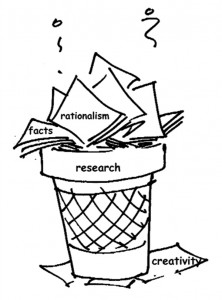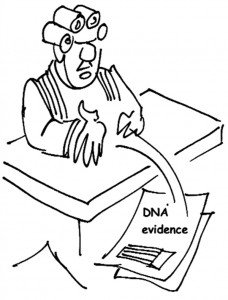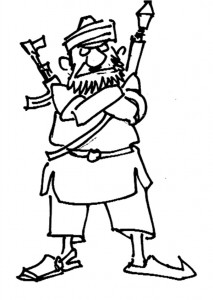
State failure

Sir,
The recent loss of human life in Karachi as a result of the heat wave has been devastating. Analysts have ascribed different reasons to the catastrophe, some pointing to climate change and others to poor governance in Sindh. It is worth asking why – when such a tragedy should hit on this scale – we are more likely to see NGOs helping those affected than governments.
The neoliberalism of the 1990s – underscored by deregulation and privatisation under the right-of-centre PML government – aimed to minimise the role of the state and promote market forces. These policies continued through the 1990s and received impetus under the dictatorial rule of General Musharraf and finance gurus such as Shaukat Aziz. Consumerism and trickledown economics left the market in control: the poor became poorer and the rich, richer. The number of people living below the poverty line increased. These problems have continued to accumulate for more than two decades now.
The process of state withdrawal from the lives of ordinary citizens and the move to promote solely profit-motivated markets has now taken root. Essential services such as water and power are now for only those who can pay. The state has already withdrawn from education and healthcare. The vacuum has been ‘filled’ by the private sector and left the poor to the mercies of ill equipped, poorly funded education and health institutions in the public sector. On the other hand, the sale of generators has doubled in recent months, indicating that everything is available for those who can afford it. The dream of an Islamic welfare state seems to have gone sour.
Malik Atif Mahmood Majoka,
Melbourne, Australia.
What research?

Sir,
I have been to three universities – one in Pakistan and two in the UK – but my understanding of the stark realities of life owe more to the time I spent imprisoned in Peshawar Central Jail during 1984–1986. Men of the street study life from a very close, very real angle; they have been my teachers. Those born with a silver spoon in their mouth cannot possibly understand the challenges that the downtrodden face. Apart from this individual struggle, collective resistance against oppressive and dominant irrationality is also a great teacher. ?
In 1995, I wrote a newspaper article titled “Ignorant PhDs” when a group of Peshawar University professors had launched a campaign against the instalment of “un-Islamic” satellite dish antennas at some residences on campus. The professors were also fighting over housing allotments. After the article was published, a delegation of agitated professors met the editor of the daily to lodge a complaint against me. Subsequently, a couple of professors who had led that campaign went on to become vice-chancellors of Peshawar University.
Now, the situation is even worse. Too many people are more concerned about doing a PhD not to create new knowledge or to learn something new, but for the purpose of promotion. The quality of their research is abysmal, especially in the social sciences. All that is happening is that our universities are producing an army of unemployed, ‘copy-paste’ PhD scholars.
Scholarship is not the repetition of existing knowledge: it is a step forward in search of new horizons. We need scientists in the physical and biological sciences, and engineers who can help build modern infrastructure and bring about a technological revolution. We need inventors, masters in the applied sciences and crafts. Innovation and creativity lead to scientific, industrial and technological revolutions. In the social sciences, we need daring minds who can think rationally, who can challenge orthodoxy and taboos through objective research. We need scholars who can offer out-of-the-box solutions to combat social ills. Our scholars must critically review those practices that are imposed on us in the name of state, religion, culture and tradition.
If not, the mediocre will continue to monopolize knowledge and vision in Pakistan and we will be left to the mercy of those with big degrees and tunnel vision. It is ironic that we have produced thousands of PhDs while the real wisdom lies with ordinary people on the street.
Shiraz Paracha,
Lahore.
Holding us hostage

Sir,
On 30 June, a young man named Syed Kashif Chishti – armed with an automatic weapon – held a group of people hostage on Khayaban-e-Ittehad in Karachi for almost half an hour before being overpowered by a journalist and the police. The questions that arise are: was the weapon licensed? Did it belong to a family member? If so, was it not the responsibility of the license holder to keep the weapon safe, especially if a member of his family was reportedly suffering a mental disorder and was allegedly a drug addict? Who issued the license? Should all such licenses not be cancelled?
What are even more disturbing are the media reports that Chishti had served as a pilot instructor at the flying academy set up during the PPP tenure. How was a man with serious medical issues recruited by the national airline and cleared by the Civil Aviation Authority to fly solo and train student pilots? If these reports are true, then an investigation needs to be launched into all recruitment made after 2008, when PIA was under the helm of a managing director allegedly involved in gross irregularities in recruitment.
Aneela Chandio,
Sukkur.
Zakat deductions
Sir,
The government should instruct the State Bank of Pakistan and other financial institutions to discontinue the practice of seeking from Muslim clients a declaration of sect or fiqh for the purpose of zakat exemption. Note that the 9 March 1999 Supreme Court judgment (Civil Appeal No. 426 of 1992) grants all Muslims, regardless of sect, the right to seek exemption from zakat deduction, thereby making form CZ-50 affidavits redundant. Given that the deduction of zakat is optional, it should not be deducted from any person by a financial institution unless directed by that individual to do so.
It is worth emphasizing that the declaration of a person’s sect on any document further divides the citizenry, which seeds sectarian strife. Recording such information for any purpose ought to be discontinued. This anomaly should be easily rectified through the Supreme Court taking a public interest suo motu notice to clarify its original judgment: that zakat should only be deducted from those who voluntarily instruct their banks on a plain piece of paper to do so – no need for forms. No such instructions should imply no such deduction!
This would underline and clarify the earlier verdict: that all Muslims are exempted from the compulsory deduction of zakat.
Q. Isa Daudpota,
Islamabad.
DNA evidence

Sir,
According to a report by Kawoon Khamoosh (http:/www.bbc.com/news/world-asia-33023247) dated 29 June 2015 and published on the BBC website, an Afghan court has accepted DNA as credible scientific evidence in a rape case in order to convict a father who raped his own daughter for over ten years. The shocking story was carried on Afghan television, where the courageous young woman took the unusual step of appearing on TV to tell her story and seek support from women’s rights groups and to motivate civil society into helping her get justice.
What I find disturbing is that we appear to be an even more backward society than Afghanistan – held hostage to male chauvinism because the Islamic Ideology Council has ruled that DNA cannot be accepted as evidence to convict rapists. How long can we allow this brutal distortion of our religion, which stresses on acquiring knowledge in the sciences and emphasizes justice for all, irrespective of faith, caste, creed or sex?
Our parliament, executive, judiciary, educated religious ulema and civil society have collectively failed to protect victims of rape. Have we forgotten how a young woman was kidnapped by employees in connivance with security staff at the Quaid’s mazaar in Karachi and raped on the premises of a national monument? Her rapists managed to escape. How can any right-thinking individual conclude that the evidence of three male witnesses is mandatory to convict a rapist, when this requirement exists to discourage public displays of immorality?
Malik Tariq,
Lahore.
MQM’s alleged ties

Sir,
Over the past two weeks, the print and electronic media have resounded with news pertaining to the alleged links between the MQM and the Indian government, based on a report broken by the BBC. Quoting unnamed Pakistani sources, the BBC reported that two senior MQM officials had, in formal recorded interviews, told Scotland Yard that the party had received funds from the Indian government. Additionally, the report claimed, sources confirmed that, over the last ten years, hundreds of MQM militants had been trained by India in explosives, weapons and sabotage; the training had taken place in camps in north and northeast India. When the BBC asked the Indian government to respond, it termed the charge completely baseless.
The MQM’s initial silence over the matter raised immense public curiosity. However, after the party’s response to the BBC report, the highly charged atmosphere surrounding this issue has cooled down somewhat. The MQM has categorically refuted the allegations made in the report and its Coordination Committee claims that the report itself is an attempt to tarnish the image of the party in Pakistan and throughout the world.
While allegations and counter-allegations continue to be levelled and denials continue to emanate from the various quarters involved in this complicated and extremely sensitive matter, the Government of Pakistan is reportedly in touch with the British authorities with a view to seeking the facts of the report. Undoubtedly, its contents are vital to Pakistan. The foreign secretary is reported to have confirmed that institutions relating to national security are handling this critical matter.
The measures taken by the Government of Pakistan – and those it is contemplating taking – seem appropriate and sensible. Should we not then desist from drawing conclusions and wait until the investigation of the case is complete and the facts brought to light? The MQM may not necessarily be guilty of the crimes it is alleged to have committed – until proven guilty. If, after due investigation and process, the party is indeed found guilty, the law of the land must take its course and bring the perpetrators to book immediately.
M. Fazal Elahi,
Islamabad.
Gains of Zarb-e-Azb

Sir,
Fourth-generation warfare is a complex phenomenon. Combating terrorism requires resolve, resilience and patience – it is a long-term war. The much debated and long-awaited North Waziristan operation Zarb-e-Azb (launched in June 2014) and its successor Operation Khyber-2 were launched to clear the agency of miscreants operating in the area. To avoid collateral damage, residents of North Waziristan had to be temporarily displaced. Within the short span of a year, the bulk of the operations’ objectives have been achieved and we have now entered the final stage. The Pakistan army has, once again, maintained its tradition of defending the country, having sacrificed hundreds of officers and jawans.
More than 2,000 terrorists, including hard-core and most-wanted militants, have been killed. Several hundred tonnes of explosives have been recovered and many explosive-producing units have been destroyed. Thousands of weapons of various calibres, including sniper rifles, rocket launchers and AK-47s, have been recovered. Over 800 militant hideouts have been destroyed in North Waziristan and Khyber. Simultaneously, the scope of operations has been expanded to urban areas throughout Pakistan with over 9,000 intelligence-based operations conducted to dismantle the logistical support networks facilitating terrorists. Unfortunately, the top leadership of the TTP, including Maulvi Fazal Ullah, is still at large, reportedly in Afghanistan.
Now, after almost a decade-long war against terrorism – and at the huge cost of over 4,000 law enforcement agency (LEA) personnel, over 50,000 civilian casualties and enormous economic loss to the country – there is a need to consolidate the gains. The areas cleared by the army need to be handed over gradually to the civil administration, the Frontier Corps and the police. The foremost priority should be the return and settlement of temporarily displaced persons (TDPs) during the consolidation phase, ideally ensuring that they are able to celebrate Eid-ul-Fitr in their homes. Civic facilities in the area must be restored more quickly. The LEAs need advanced training and equipment to build their capacity as soon as possible so that the army can be relieved to carry out pending operations in Balochistan to clear the area for the proposed China-Pakistan Economic Corridor.
Nonetheless, the army must maintain a significant presence in the area to lend confidence to both the civil population and civil administration. Local lashkars under their respective political agents should be raised and equipped to help the LEAs ensure peace and security, while tribal elders and maliks should be entrusted with the responsibility for ensuring peace at the grassroots level. Intelligence-based operations must continue to make sure that terrorists do not have the opportunity to reorganize their resources and regain any foothold in the cleared areas. The LEAs should react immediately to evict and eliminate any reported miscreants.
Given that terrorists thrive on foreign support, their chain of funding will have to be stopped to put a halt to their logistics networks. Simultaneously, border management with Afghanistan should be improved to check any infiltration or fall-back from across the Durand Line. Finally and most importantly, FATA should be brought into the political mainstream through a constitutional amendment. It should either be organized as a separate province or made part of KP, keeping in view the will of its residents, preferably through a referendum.
Consolidating the gains of Operation Zarb-e-Azb is crucial if we are to put a stop to the vicious cycle of gaining and losing territory to militants. The political and civil administration must rise above their materialistic approach and assist in the resettlement of TDPs and in maintaining peace and stability in the area. Let us hope that the sacrifices of the armed forces bear fruit and peace prevails in this war-torn area.
Muhammad Latif,
Islamabad.

